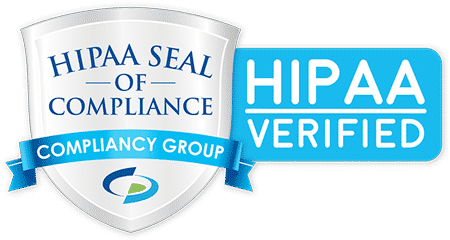
Every industry is vulnerable to cyberattacks, but some are more targeted than others. One of the most frequently targeted industries is the healthcare sector. The security posture of many healthcare organizations are put to the test on a daily basis. As if that wasn’t enough, cyberattacks against healthcare institutions have increased by 45% globally, according to a report from Check Point.
It’s enough to make you wonder what is causing hackers to focus so much of their attention on healthcare organizations. There are actually a few answers to that question. In this blog, we’re going to talk about healthcare cybersecurity issues and why the industry is a magnet for cybercrime.
Why Has Healthcare Become Such a Target for Cyberattackers?
As with most commercial entities, businesses in the healthcare sector rely on their IT infrastructure for their day-to-day operations. Also like other businesses, their IT environment is vulnerable to cyberattacks. So what makes the healthcare sector so much more alluring to cybercriminals?
Here are some of the main reasons why hospitals, clinics, blood banks, and more are constantly fighting off cyberattacks:
Patient Information Is Highly Valuable
Data is like treasure to a hacker, and the more detailed and personal it is, the bigger the treasure is. Patient information is about as personal and detailed as data gets. It can include Social Security Numbers, medical records, credit card numbers, and so on.
Healthcare facilities sit on top of a mountain made of this data. If a bad actor were to get their digital hands on this jackpot, they could potentially make a fortune selling it on the black market or using it for their own means.
Numerous Angles of Attack
The more technology is integrated into your business, the more vulnerabilities your business is going to have. Healthcare organizations depend on a variety of equipment like dialysis machines, heart monitors, and digital pacemakers. This is in addition to the usual office IT supplies like VoIP phones, computers, and printers.
The number of devices and applications within a healthcare facility makes it difficult to ensure everything is protected. It also creates numerous vectors hackers can use to invade the facility’s network. It doesn’t help that patient information needs to stay accessible and shareable at all times.
Outdated Systems
Medical offices are busy places that can’t afford lengthy downtime for any reason. It may be a top compliance risk in healthcare, but it’s not uncommon to see organizations use outdated technology—like Windows 7. However, it’s necessary to stay up-to-date with upgrades and patches as they often contain fixes for known vulnerabilities.
Limited Training Opportunities
Cybersecurity training is crucial in teaching staff how to identify and avoid cyberthreats. However, training is something that takes time. Most people who work in healthcare don’t have the time to participate in his kind of training.
Ransomware Is More Effective When Lives Are at Stake
If your company is hit by a ransomware attack, it’s recommended to not pay the ransom. The reason why is because it encourages the criminal to do it again. There’s also no guarantee they’ll decrypt the system after receiving payment. If it’s a matter of life or death, a hospital may not have much of a choice.
Security Threats and Vulnerabilities
A security report from IBM found that healthcare cyberattacks more than doubled in 2020. Nearly one out of four of all cyberattacks last year were ransomware attacks. However, ransomware isn’t the only risk healthcare organizations have to worry about.
There are a variety of cyberattacks healthcare providers deal with. Here are a few of the most common types of attacks used against the industry.
- Web Application Attacks: Web applications—like Google Suite—have their benefits. However, they also create security gaps because of their ease of accessibility and reliance on user input.
- Malicious Network Traffic: Malicious traffic is any suspicious link, file, or connection that is created or received on a network. When opened, the threat can negatively affect security or compromise the personal computer by creating a pathway for more malware.
- Phishing: Phishing attacks are just about as common as ransomware attacks. These attacks use social engineering to trick your employees into performing an action that allows malware to be installed on your network.
Stay Protected With Net3 IT
Net3 IT is a managed services provider that has been supplying cybersecurity solutions to businesses in the Knoxville, TN, area since 2012. When you partner with us, our team ensures your network is protected from even the worst cyberthreats. Since every company is different, we customize our solutions to meet the demands of your operations.
Contact us today to learn more about how Net3 IT can keep your network secure.

About Us
Since 2012, Net3 IT has offered enterprise-level IT experience and industry knowledge to help Knoxville businesses make the right decisions. We are committed to our customers’ success by providing cost-effective, high-value IT services, VOIP phone services, and strategic consulting.

